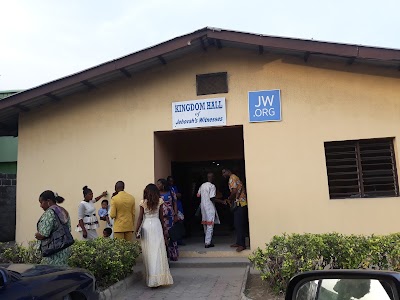
The museum is also to document the extraordinary story of ordinary Nigerians and foreigners including men, women and children, whose acts of faith laid the foundation for the thriving activities of over 400,000 witnesses in the country.
The spokesman for the Jehovah’s Witnesses, Olusegun Eroyemi, in a statement, said the museum located in the Igieduma village, Edo State, depicted the various influences of non-witness actors that impacted the spread of their activities positively and negatively.
He explained that the history of the Witnesses in Nigeria began with the arrival of Claude Brown, also known as Bible Brown, in 1921, adding that the Museum showed that Witnesses first established a branch office and started their evangelical ministry in the country the same year.
Eroyemi said, “Jehovah’s Witnesses recently opened a historical museum in Igieduma village, Edo State. The Museum project tagged, 100 Years of Courage, documents the activities of Jehovah’s Witnesses and others who were involved in the establishment of their preaching and community development activities in Nigeria since 1921.
“Nigeria is a diverse country with a rich cultural and historical heritage. The people making up the country have various social, religious and cultural experiences dating back several centuries. The advent of Christianity, with its increasingly various denominations, ushered in a new era in the history of the people making up Nigeria.
“Jehovah’s Witnesses make up a significant part of the Christian populace of Nigeria. While the COVID-19 pandemic raged, this museum project was launched at the branch office of Jehovah’s Witnesses at Igieduma village, Edo State. The project documents the 100 years of the work of the witnesses in Nigeria, and the extraordinary story of ordinary Nigerians and foreigners, men, women and children, whose acts of faith laid the foundation for the thriving activities of over 400,000 witnesses in Nigeria.”
Speaking on the challenges the Jehovah’s Witnesses faced in Nigeria, Eroyemi said the Nigerian civil war brought a new dimension to the challenges the institution faced, adding that some Witnesses were killed by soldiers and others for refusing to fight in the war in obedience to God’s command in the Bible.
He said, “With the resulting limited contact, the flow of Bibles and Bible-based publications became strained. However, in remarkable demonstrations of faith, the Witnesses on both sides risked their lives and freedom to cross the lines to deliver publications and directions to those in the war zone.
“In heart-touching personal stories, the museum captures the experiences of specific witnesses who took part in the risky undertaking of crossing the war zones to reach their brothers and sisters on the other side. A cocktail of ingenuity and faith was often on display.
“Sadly, some Witnesses were killed by soldiers and others for refusing to fight in the war in obedience to God’s command in the Bible – You must not kill (EXODUS 20:13). In interesting twists, some of the soldiers who fought in the war, including some who encountered or even killed Jehovah’s Witnesses for refusing to join the war, became Jehovah’s Witnesses themselves after the war, some becoming elders and missionaries.”





